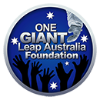How many black holes are there in the universe?
Black holes are notoriously hard to detect, since they are as black as the space surrounding them. We can only pinpoint them in special circumstances, like when they pull down gas from a neighboring star or merge together, releasing a flood of gravitational waves.












